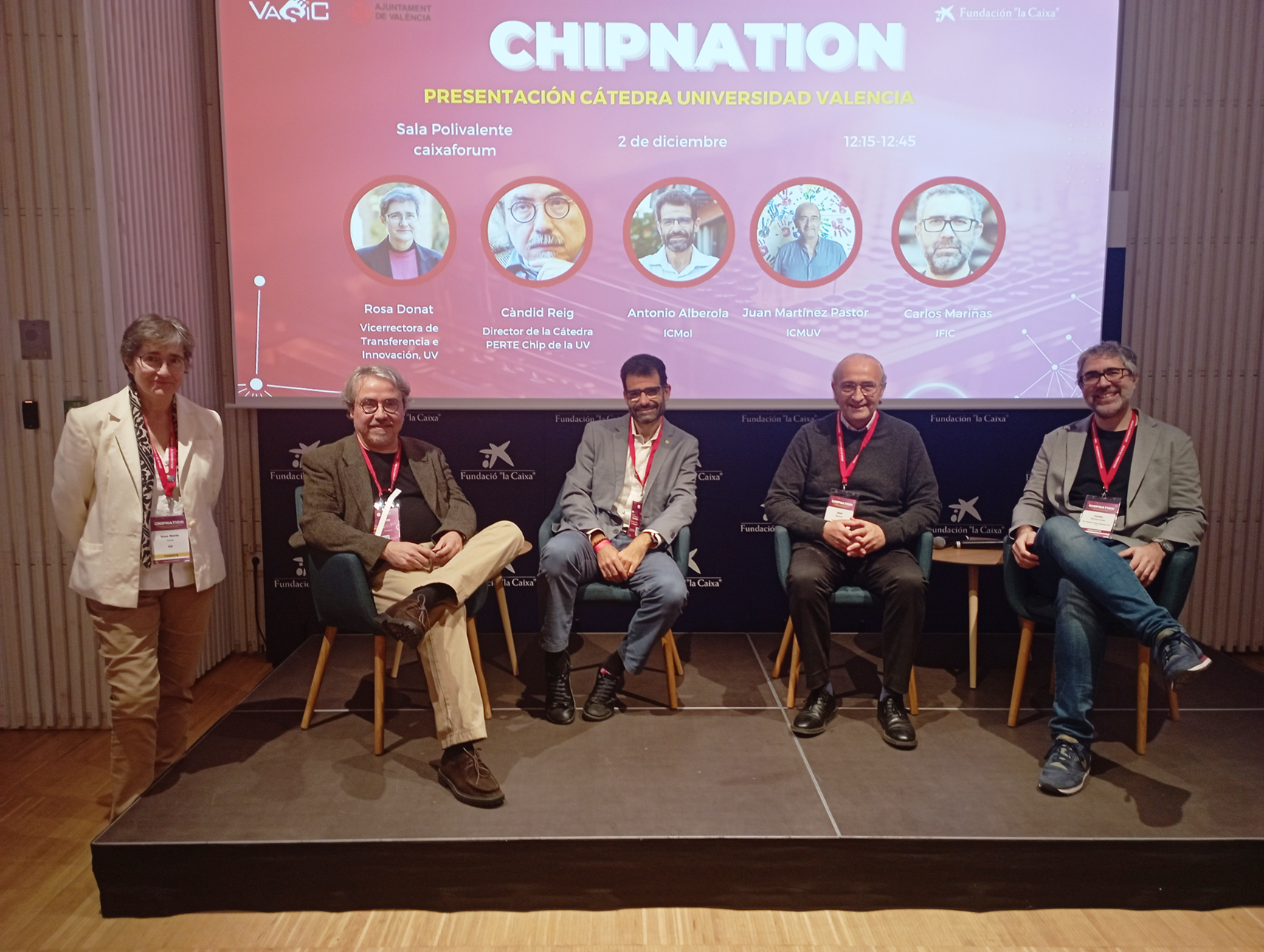
Source: IFIC News
The Chips Joint Undertaking (Chips JU) has approved funding for the creation of a network of centers specialized in semiconductor design in Spain, called MicroNanoSpain. This initiative includes participation by the Institute of Corpuscular Physics (IFIC), a joint center of the Spanish National Research Council (CSIC) and the University of Valencia (UV). The project was presented by a consortium of universities, research centers, and Spanish business associations, within the European call for Competence Centers in Chip Design. Its goal is to strengthen the semiconductor industry across the continent.
The Chips for Europe Programme considers these Competence Centers essential to enhance the visibility of the sector and provide open and non-discriminatory access to technological infrastructures. Furthermore, they will play a pivotal role in creating educational and training networks, connecting institutions with Europe’s network of specialized centers. The Competence Centers for Chip Technology (CCC), established under the framework of Chips JU and the EU Chips Act, will provide access to advanced knowledge, experimentation, and prototyping. They aim to help businesses, particularly SMEs, enhance their design and development capabilities in semiconductor-based products.
The CCCs will offer a range of services to all stakeholders in the semiconductor industry, including startups and SMEs, to foster innovation and growth in this key sector. These services include:
- Facilitating access to design platforms and “pilot lines.”
- Supporting stakeholders in developing semiconductor solutions (technology transfer).
- Providing access to skill training.
- Enabling connections to the European Network of Competence Centers.
- Promoting the “Chips Fund” and facilitating access to venture capital.
- Raising awareness, promoting services, and showcasing success stories.
IFIC as an Associate Center
IFIC boasts state-of-the-art facilities in computing, electronics, and mechanics. These facilities have been crucial for IFIC to lead the development of advanced technology detectors. The institute’s capabilities are evidenced by its ability to construct and test detector systems and instrumentation for large-scale physics experiments. Key resources include its cleanroom facility and the electronics laboratory, which, with its high-end equipment and skilled personnel, can contribute to all stages of R&D in sensors and electronics (front-end and back-end) through to delivering complete systems, including integration and quality control.
“The certification of IFIC as a Competence Center in semiconductor technologies acknowledges our over three decades of excellence in silicon technology development, from early R&D stages and high-tech innovation solutions to producing complete systems for major nuclear, particle, and astrophysics experiments worldwide,” said Carlos Mariñas, researcher and IFIC representative within the MicroNanoSpain Competence Center.
IFIC’s Representation at ChipNation Conferences
On December 2–3, Valencia hosted the second edition of ChipNation, a leading national conference for the microchip sector. Carlos Mariñas delivered a presentation on the Advanced Materials Chair of UV, introducing IFIC’s capabilities and detailing two projects underway with FYLA Laser and DECTRIS in this context.
“The organization of the ChipNation conference in Valencia is a strong endorsement of the robust semiconductor ecosystem in the city. IFIC, as a reference center in the sector, plays a significant role in organizing and developing this event,” Mariñas added.
The IFIC Business Innovation Scientific Unit (UCIE) also attended the conference, engaging in discussions on technology transfer and participating in networking activities. This unit will act as a gateway for businesses and administrations seeking access to IFIC’s services and infrastructure offered through the MicroNanoSpain Competence Center.
The conference, held at CaixaForum Valencia, aimed to establish a clear roadmap for investment by businesses and public administrations at a critical moment for the sector on a continental scale. The Spanish Association of the Semiconductor Industry (AESEMI), in collaboration with Valencia Silicon Cluster (VASIC), emphasized this point in a statement.
IFIC’s Other Key Collaborations in the Sector
Carlos Mariñas has also been invited to join the Semiconductors Working Group for the report on “The Future of European Competitiveness,” commonly referred to as the Draghi Report.
“This is a pivotal moment for the sector, and we must not forget that actions in semiconductors and microelectronics have a direct impact on many aspects of our daily lives. The Draghi Report extensively identifies several shortcomings in various fields within the EU and outlines potential actions to regain or maintain our leadership against other markets. The working group I am part of will aim to adapt these proposed policies to our country’s realities and propose tailored measures suited to the characteristics of our production system,” Mariñas explained.
Mario Draghi, an Italian economist, former Prime Minister of Italy, and former President of the European Central Bank, was commissioned by the European Commission to draft a report presenting his personal vision on the future of European competitiveness. The report highlights industrial and business challenges within the single market and offers a new roadmap for sustainable prosperity and competitiveness in Europe.
